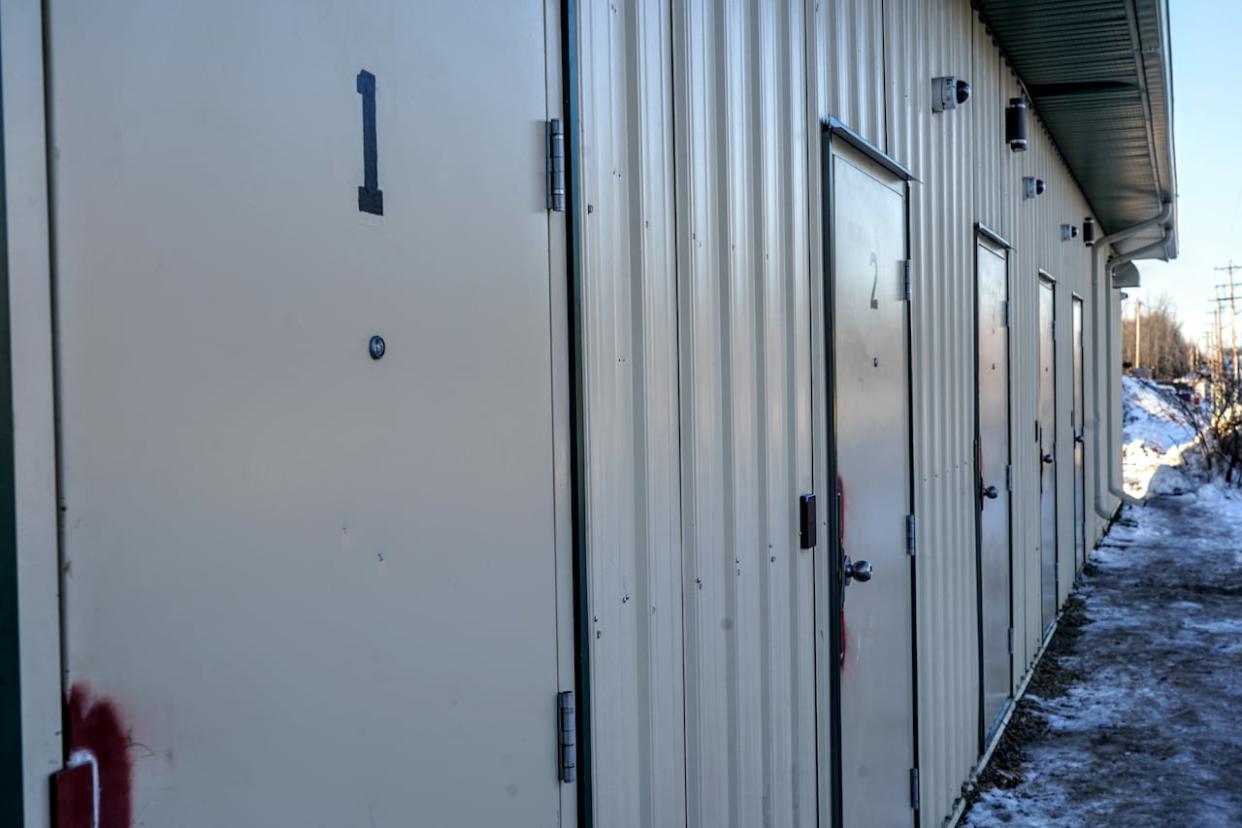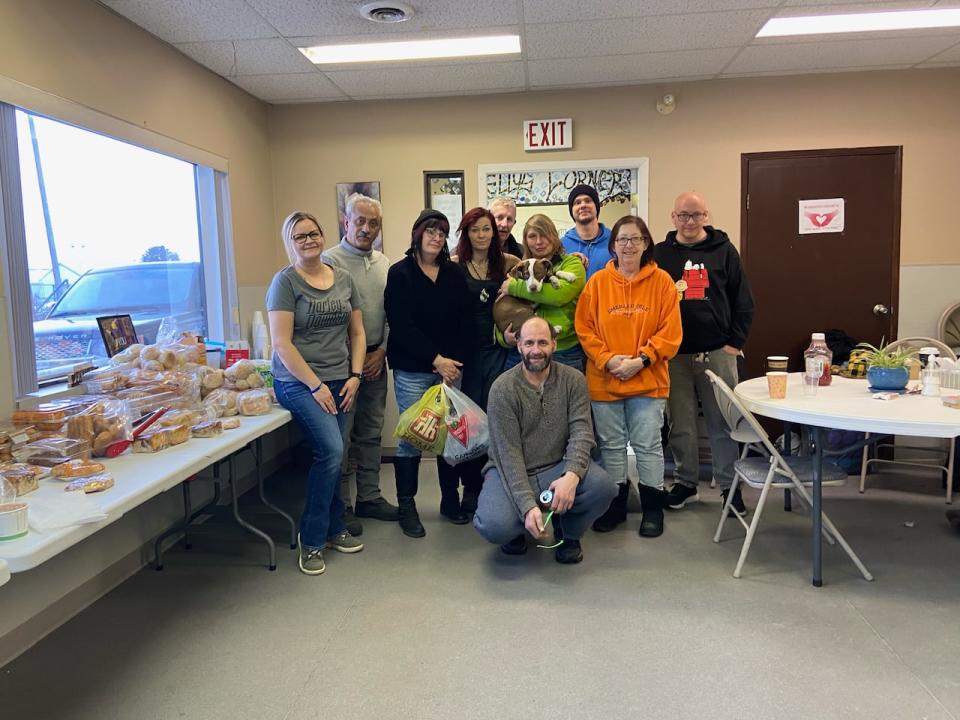Emergency homeless shelter pods shut down in Edson, thriving in Drayton Valley

Once unhoused, addicted to crystal meth and pregnant, a mother says emergency shelter pods recently closed in Edson, Alta., saved her baby's life.
Shelby Klaric says the five rooms, located at the back of a recycling building, played a crucial role in getting clean and housed, in time for her daughter's arrival.
"I probably would have lost my baby and I most likely would have been dead because of what I was on," Shelby Klaric told CBC News in a recent interview.
"Because of the shelter pods, having a place that was warm at night and the ability to not be on the streets roaming around, I didn't need to go get drugs."
The single-occupancy emergency pods opened in 2021 in the town of Edson, 200 kilometres west of Edmonton, as a pilot project in response to the pandemic.
They inspired a similar initiative in Drayton Valley but in Edson, they are no longer an option.
Edson is instead offering shelter in two security monitored trailers but they are not meant for sleeping. The trailers can be accessed between 8 p.m. and 8 a.m. whenever temperatures hit –25, including wind chill.
On Sunday, temperatures plunged to –51 with the wind chill — only slightly warmer at –48 when occupants had to leave.
Edson's mayor said multiple factors led to the demise of the emergency shelter pods including the inability of local agencies to continue running them.
Mayor Kevin Zahara said the pods were not a long-term solution.
"Unfortunately, it went from more of a temporary emergency use to more of a permanent supporting housing solution, which was not the original intention," Zahara said.
"Throughout the two years of the pilot project, the community had concerns over security and safety."
RCMP said two people staying in the pods died separately last autumn from drug poisoning, likely from a toxic drug supply.
Zahara said municipalities the size of Edson don't have resources to offer more permanent housing solutions and the town is focusing on saving lives in extreme temperatures.

Shelby Klaric says the shelter pods saved the lives of her and her baby. (Submitted by Shelby Klaric)
According to the Rural Development Network, Edson's lack of resources for unhoused residents highlights a much larger problem.
Pointing to a 2022 report by Rebecca Schiff, dean of the Faculty of Human and Health Sciences at the University of Northern British Columbia, the network says funding for growing rural homelessness is just a sliver of what it is for cities.
The network is offering rural communities $4 million in federal grants over two years to start to address that gap, including money for Indigenous communities, whose members are disproportionately affected.
Sydney Stenekes, director of homelessness initiatives with the network, praised the ongoing commitment to address homelessness shown by Edson's municipal leadership and community advocates, where it's hoped a newly formed task force can provide some answers.
"I know the community is working hard to find an alternative solution in the short-term while they work on some of those longer term solutions as well," Stenekes said.
Drayton Valley pods
Inspired by the Edson initiative, an organization in Drayton Valley, 150 kilometres southwest of Edmonton, opened its own version of the shelter pods in 2022.
During the recent deep freeze, Hack Hamdon with Humans Helping Humans, said up to 15 people are accessing the insured, double occupancy year-round run pods each night.
He said the pods cost about $11,000 per month to run in the winter.

Drayton Valley advocates and residents sleeping in the pods say it provides a safe, comfortable option when it's too cold to camp. (Submitted by Hack Hamdon)
In a group interview at Warming Hearts Centre, which supports unhoused residents, three members of the close-knit community who stay in the pods deemed them a success.
They said the pods offer a warm, secure place where couples can stay together, and their dogs are also welcome.
They added that the extended hours of the pods, from 8 p.m. until 10 a.m., ensure people don't check out until doors open at Warming Hearts.
"When we didn't have the pods, it made our lives very, very difficult and there were a lot of deaths happening and a lot of chaos," said Wayne Meronowich.
"When Warming Hearts and the pods opened up, it started to level things out quite a bit."


